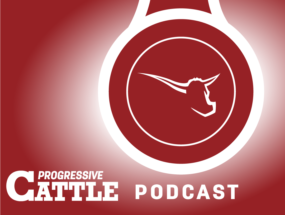Ludwig recently lifted a 2006 ban on live cattle exports to 11 Indonesian abattoirs after an outcry over a video that aired in Australia showing animals screaming and writhing as they were slaughtered.
The footage also showed cattle being beaten and taking minutes to bleed to death as their throats were repeatedly slashed.
Under a new animal welfare audit system, abattoirs will have to prove they meet certain animal welfare guidelines. Ludwig said tracking and transparency in the cattle supply chain will also be improved.
“The exporter is required to trace the animals from the domestic supply chain into the feedlot, from the feedlot into the abattoir,” he said. “The abattoir will be independently audited.”
The footage was filmed by Animals Australia which is joining with other groups to force the Australian government to impose a total and permanent ban on live animal exports.
“There is no possibility of the Australian federal government guaranteeing the welfare of Australian animals when they are sent overseas,” says Dr. Patricia Petersen, an independent animal welfare activist.
“The live export market is costing Australia thousands of jobs within the meat processing industry and is harming Australia’s economy.
Therefore, on both moral and economic grounds, the live export trade ought to be banned.”
Independent party politicians Andrew Wilkie and Nick Xenophon have presented bills to phase out the live export trade over the next three years.
Both are urging Australia turn to the boxed meat trade instead of trying to improve handling and slaughter conditions overseas.
They say immense cruelty has been exposed in the 500,000 head-a-year trade in which cattle and sheep are beaten, have eyes and noses gouged and bones broken before “a slow and painful death.”
Abattoir boss Geoff Teys says the cruelty issue has damaged the entire industry, not just exporters. “Producers are horrified. They never dreamed this was happening to their animals.”
Lang Coppin, who owns a cattle station in Western Australia’s Pilbara region, told the Associated Press that Ludwig’s lifting of the export ban to Indonesia came just in time.
About half the 4,000 cattle Coppin exports each year go to Indonesia, and he says his business has been struggling since the exports were halted.
China
As China’s economy grows and its population becomes more urbanized, diets are changing rapidly. Soya (soybeans) is the feedstock for this revolution, but demand for it can no longer be met within China.
So the Chinese state-owned agribusiness company Beidahuang has joined the global scramble for land and water that has accelerated since food prices spiked in 2008.
Last year it was confirmed that the company had signed an agreement, with the government of Argentina’s Río Negro province in the Patagonia region, which provides the framework for it to acquire up to 320,000 hectares (790,000 acres) of privately owned farmland, along with irrigation rights and a concession on the San Antonio port.
Details of the deal, alleged to have been kept quiet, have been emerging in recent weeks as Chinese technicians have started work.
Beidahuang is the leading soya producer in China and one of the country’s five largest soya processors. It also raises more than 600,000 cows, 1.3 millon pigs and more than 6 million chickens at any one time.
The company believes its expertise in large-scale farming can be transferred to many other countries.
Beidahuang reported a 2008 deal on about 500,000 acres in the Philippines, and says it plans to buy palm oil plantations and grain terminals this year as it pursues the Chinese government’s policy of securing food supply lines from abroad.
“They are moving in,” says Carlo Lovatelli, president of the Brazilian Association of Vegetable Oil Industries.
“They are looking for land, looking for reliable partners. But what they would like to do is run the show alone.”
While many welcome the investments, the aggressive push comes as Brazilian officials have begun questioning the “strategic partnership” with China encouraged by former President Luiz Inácio Lula da Silva.
The Chinese have become so important to Brazil’s economy that it cannot do without them – and that is precisely what is making Brazil increasingly uneasy.
United Kingdom
Muslims account for about 20 percent of lamb consumption in the UK and a small but increasing amount of beef.
The Halal meat market therefore is a multi-million pound contributor to the British economy. Muslims, like those of Jewish faith, have specific requirements for the slaughter of religiously acceptable animals.
The major difference with Halal and Kosher from general practices in most countries is that the animals are not stunned prior to slaughter.
But, recent legislation in the UK requires all non-stun meat to display a three-step label describing the animal’s country of birth, upbringing and slaughter.
Therefore a group of non-stun abattoir owners have formed an association to create and raise awareness of the Halal industry according to the teaching of the Quran and the prophetic tradition.
Ghulam Mustaffa of Premier Halal Meat, says this is good news for Muslim consumers. “The label will give consumers assurance that the meat they will be consuming is truly Halal and is ritually Halal slaughtered according to Islamic principles.” 
Clint Peck is the owner of Global Beef Systems, LLC. Contact him at cpeck_99@yahoo.com .







